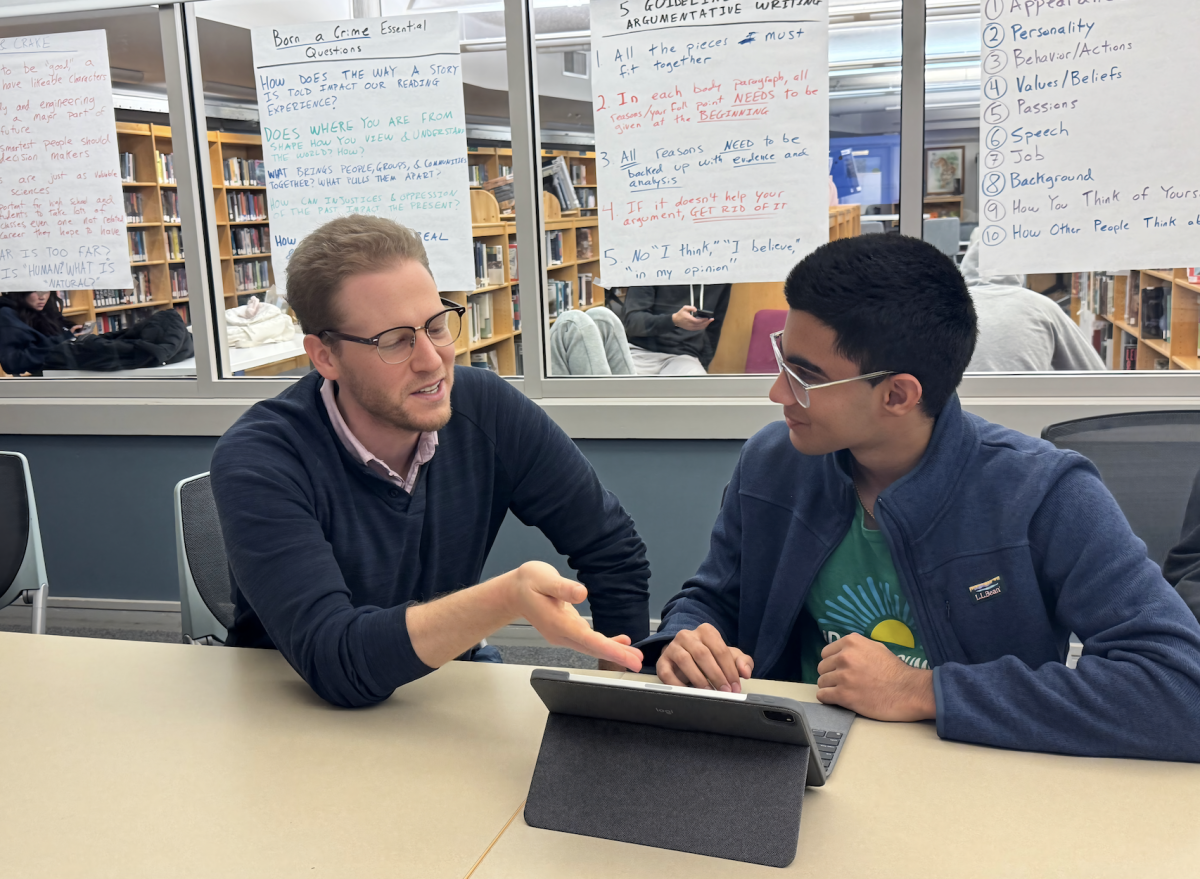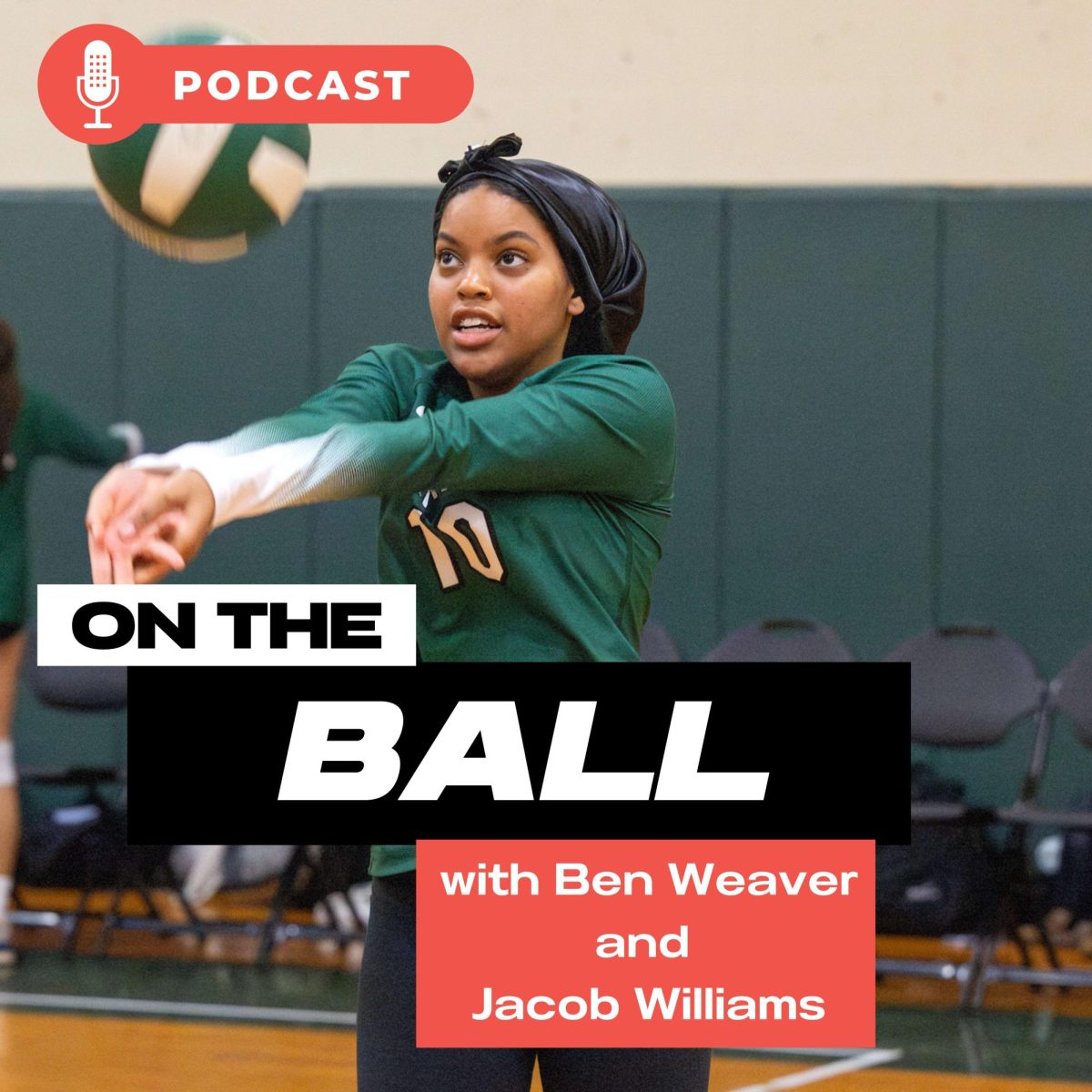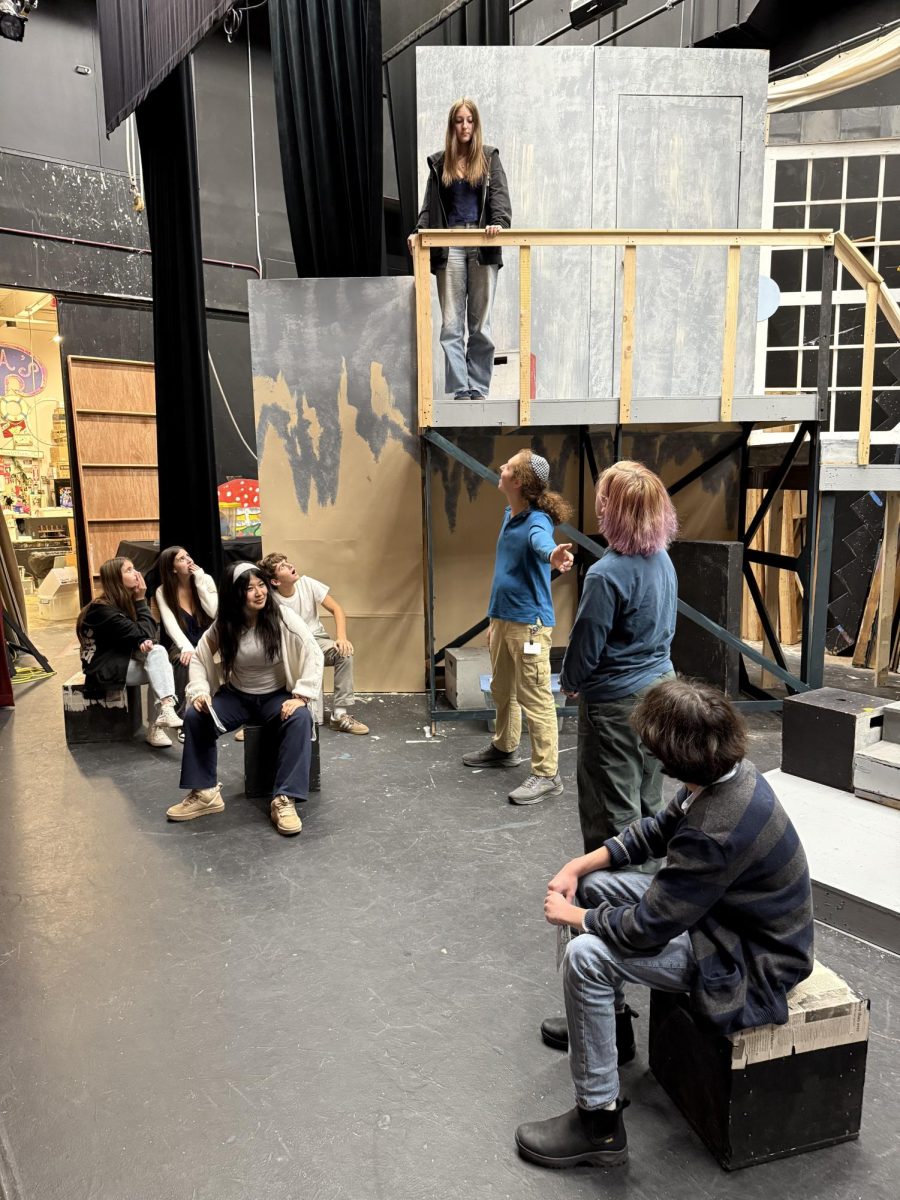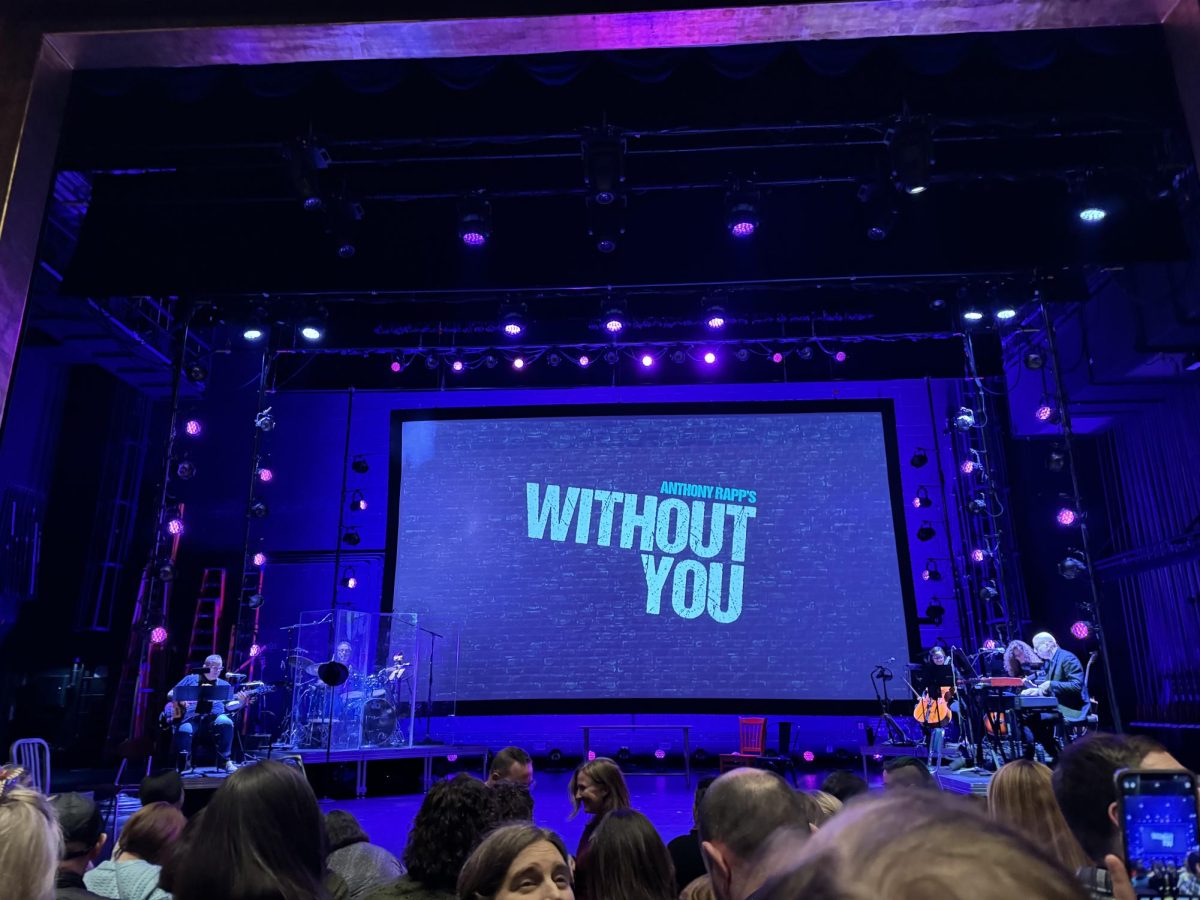I bought tickets for Without You on a normal, windy weekend at the end of March.
“A new musical based on the best-selling memoir of Without You: A Memoir of Love, Loss, and the Musical Rent,” the Emerson Colonial theater in Boston advertised.
I was immediately interested, but I had expected it to be like most other musical – perhaps on a smaller-scale. However, the show ended up moving me and all the audiences in the house.
Anthony Rapp opened the show with Rent‘s iconic number, “Seasons of Love,” infusing the performance with a unique blend of freshness, sincerity, and beauty. “Five hundred twenty five thousand six hundred minutes…Five hundred twenty five thousand moments so dear,” It’s something that only one like Rapp, the original star of Rent, is capable of communicating.

The show had no conventional set-changes, only projections on the screen with a wall background showcasing different old photographs indicating where he was. The entire story followed Rent, and especially “Seasons of Love ”, as the key that flowed throughout the story. Young Rapp was casted in Rent, marking the significant turning point in his career.
Jonathan Larson, the book writer of both Rent and Tick Tick…Boom! was such a supportive friend and coworker to Rapp.
He was always there, smiling and supporting whatever Larson and members of the cast were experimenting with. Everything seemed well, especially since the night before the preview Larson and Rapp had a heartwarming and encouraging conversation on what is to come…until, Larson abruptly died from an aortic aneurysm.
The devastation and the disbelief was clear to both Rapp and the cast of Rent, and also the audiences. Without Larson, Without You, the show still has to go on. With immense grief but also great power, the show was done. It proved itself to be a big hit and later continued to go on Broadway and was able to win the Pulitzer Prize. Larson also received numerous posthumous awards for the amazing works he was able to leave in 1996.
Following the death of Larson, Rapp continued to explore and tell more stories of his mother, including the sad truth that her time is short. From when Rapp was a child, she has always been there to support him, even when he came out to his mother that he was homosexual. So much joy was found in both Rapp and the audiences as he tells how proud he and his mother were when she came from Illinois to New York to see his performance in Rent.
But good times never last too long. His mother’s health is slowly decaying and she had to go through surgery multiple times, many when Rapp is still performing at Broadway. One of the climaxes of the show came as Rapp stays with his mother, as the doctors claim that she could go anytime.
Rapp asked her mother to write something for him. “She took a long time,” Rapp said in the show. When she finished writing, her notes and handwriting were projected on the screen as Rapp slowly read through the squiggly writings of her mother, who once had impeccable calligraphy. I could feel that the house was completely silent, and as Rapp finished saying the last notes of her mother, “I love you, I’ll always be there with you”, the house was filled with quiet sobbing.
Rapp’s mother passed soon after a phone call from Rapp’s aunt, informing him that she doesn’t have much time left. When Rapp called back again from the airport, she was already gone. At the funeral, he sang “Without You” for his mother—and for himself. At this point, the entire house was silent again. The lyrics, the stories, and the love all come together.
Something I realized after the show went on for a while was that unlike many conventional musicals where the plot is developed by a cast of characters, Rapp was the only one in Without You, narrating his story and sometimes pitching his voice to mimic conversations between him and his mother. However, his voice modulations didn’t detract from the beauty of the story—quite the contrary. It felt as if a friend had just borne his heart to me, live on stage, but with music and some singing.
Rapp mentioned in the play and in the memoir Without You that both Larson and his mother loved to see whenever he performs. They would be tremendously proud of him.























































